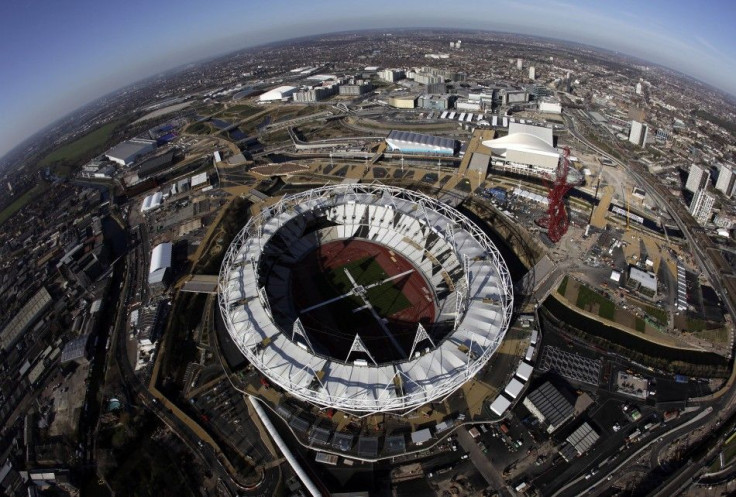London 2012 Olympics May Actually Hurt UK Tourism Industry: Here?s Why

With the start of the London 2012 Summer Olympics now just a month away, some Londoners are questioning whether the games are worth all the trouble -- and they've good reason for concern.
Cities lobby hard to host the Olympic Games. It's seen as both an honor and a major boon because it revitalizes neighborhoods, provides world-class facilities and brings in hordes of tourists -- at least that's the theory. But a look back at previous host cities reveals that the economic impact of the Olympics has been a mixed bag at best.
One month out, it looks like the boost in tourism the summer Olympic Games was supposed to provide to London may not materialize. Soaring hotel prices, concerns about overcrowding and a displacement of normal visitors means London isn't likely to see a net increase in tourists during the games at all.
Despite the anticipated arrival of 600,000 to 700,000 Olympics visitors in July and August, UK tourism officials say overall overseas visits to the country will be about the same in 2012 as the prior year, at about 30.7 million. Furthermore, bookings for many attractions and tours in the British capital are down by around 33 percent and show little sign of picking up. But the biggest problem, travel agents say, is hotel prices.
There is a tragic irony in the numbers we are seeing, said JacTravel CEO Mario Bodini. London will be a fantastic place to visit in July and August, with lots of cultural activities taking place around the Olympics, in addition to all the city's well-known attractions. It is a time when the place should be heaving, but instead, it is likely to be comparatively empty.
JacTravel, a UK-based hotel accommodation wholesaler, has forecast a dramatic slump in hotel bookings during the games.
Many hotels across the country have doubled or even tripled their rates for the weeks of the Olympics. Because the rates are so high, travel agents that would normally offer package tours to the city are having trouble selling the trips. They criticize the hotels for putting off ordinary summer vacationers by pricing themselves out of the market, even as more than a third of the rooms remain unsold.
The price distortion began seven years ago when local organizers block-booked 40,000 of London's 100,000 rooms for athletes, officials, sponsors and the media. Then in January, organizers released 20 percent of the rooms back onto the market. Despite the glut of rooms, hoteliers had maintained the high prices and minimum stays until this week, when they finally acknowledged that an anticipated visitor rush had failed to materialize. Rates are now down -- however slightly -- but it may be too little, too late.
Public perception is that a critical mass of Olympic tourists will make London an unpleasant place to be during the Games. So, instead of everyday tourists mixing with Olympic tourists, most normal tourists are heading to places far from the action. But this is nothing new. Normal tourism in other Olympic capitals such as Sydney, Beijing, and Barcelona dropped significantly during the games and took some time to recover.
In a recent report titled London 2012 Olympics Provide a Short-term Boost, But No Gold Medal for Corporates, Richard Morawetz, a vice president and senior credit officer in Moody's Corporate Finance Group, cautioned of a similar forecast.
Overall, we think that the Olympics are unlikely to provide a substantial boost to the UK economy and believe that the impact of infrastructure developments on UK GDP has probably already been felt, he said. We expect the net impact of the Olympics on UK tourism will be positive overall, but far less than gross visitor numbers would suggest.
Morawetz added that while increased visitor numbers could boost trade, any longer-term benefits will derive mainly from increased visibility, rather than the actual sales.
The World Travel & Tourism Council seems to agree, forecasting that travel and tourism's total contribution to the economy will be broadly unchanged this year, at £102 billion ($159 billion) against £101 billion ($157 billion) in 2011. The slight increase, the organization says, may even be offset by the Olympic-sized disruptions to businesses in London.
In the end, hosting the Olympic Games is a gamble and an extremely costly endeavor when you combine the construction of new facilities, the upgrades of existing infrastructure and security. The 2004 Athens Olympics, for example, was expected to cost $1.6 billion and ended up costing 10 times that amount, contributing to Greece's current debt crisis.
Initially expected to cost $5 billion, Public Accounts Committee chair Margaret Hodge reported in March that the London Olympics will likely end up costing closer to $17 billion. With a figure like that, the cost may end up outweighing the tangible benefits.
Back in 2009 as Olympic preparations began in earnest, Britain's then-Olympics Minister Tessa Jowell boasted that the event would provide economic gold at a time of economic need. Gold may be a bit ambitious. Bronze, it seems, may be more like it.
© Copyright IBTimes 2024. All rights reserved.





















